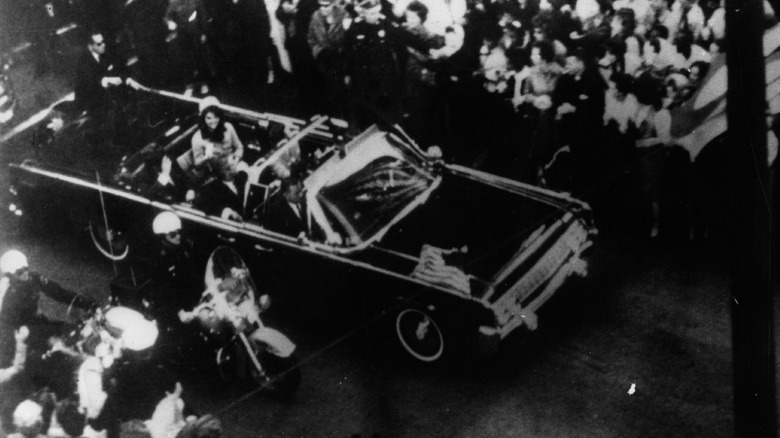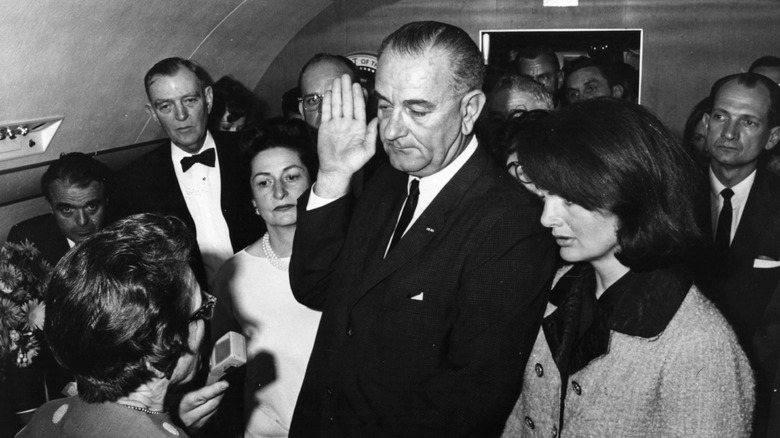What Really Happened After JFK Died?
During his presidency, John F. Kennedy represented not only a stark defiance of Soviet expansion but a pathway to peace and the betterment of all mankind. He helped to avoid untold nuclear destruction through his handling of the Cuban Missile Crisis and represented a brighter future for all when he promised in 1961 that America would put a man on the moon (via Smithsonian Air and Space Museum). While his promise was realized, Kennedy never lived to see it; he was assassinated in 1963.
Kennedy's murder led to an outpouring of international shock and sorrow, and condolences soon arrived from the British monarchy and even the Soviet Union in addition to 97 other nations (via History.com). Behind the scenes, however, the immediate aftermath was full of panic and uncertainty as both American and Soviet leaders tried frantically to understand how they fit into the tragedy, as well as how their relationship would be affected moving forward.
The assassination led to an amendment and renewed fears of war
One of the defining moments of the Kennedy assassination was the inauguration of then-Vice-President Johnson, conducted aboard Air Force One alongside Jackie Kennedy. While a seemingly sensible transition of power, at the time there were no defined rules as to how succession should play out in the event that the president was incapacitated. Sensing such a necessity, lawmakers passed the 25th Amendment, which clarified the conditions under which a Vice President may both ascend to the presidency and subsequently pick their own vice president (via Constitution Center).
Across the globe, the Soviet Union was in a state of complete disarray once assassin Lee Harvey Oswald's past residence within their borders became known. According to documents reported on by NPR, Moscow officials feared that this information might cause a deepening of anti-Communist sentiment and lead to a breakdown in diplomacy. Both sides also harbored suspicion that the other organized Kennedy's death – with figures in the U.S. suspecting Oswald was under the direct command of the KGB, while Soviet leaders believed it may have been part of a coup by internal American elements to take control of the government (via USA Today).

